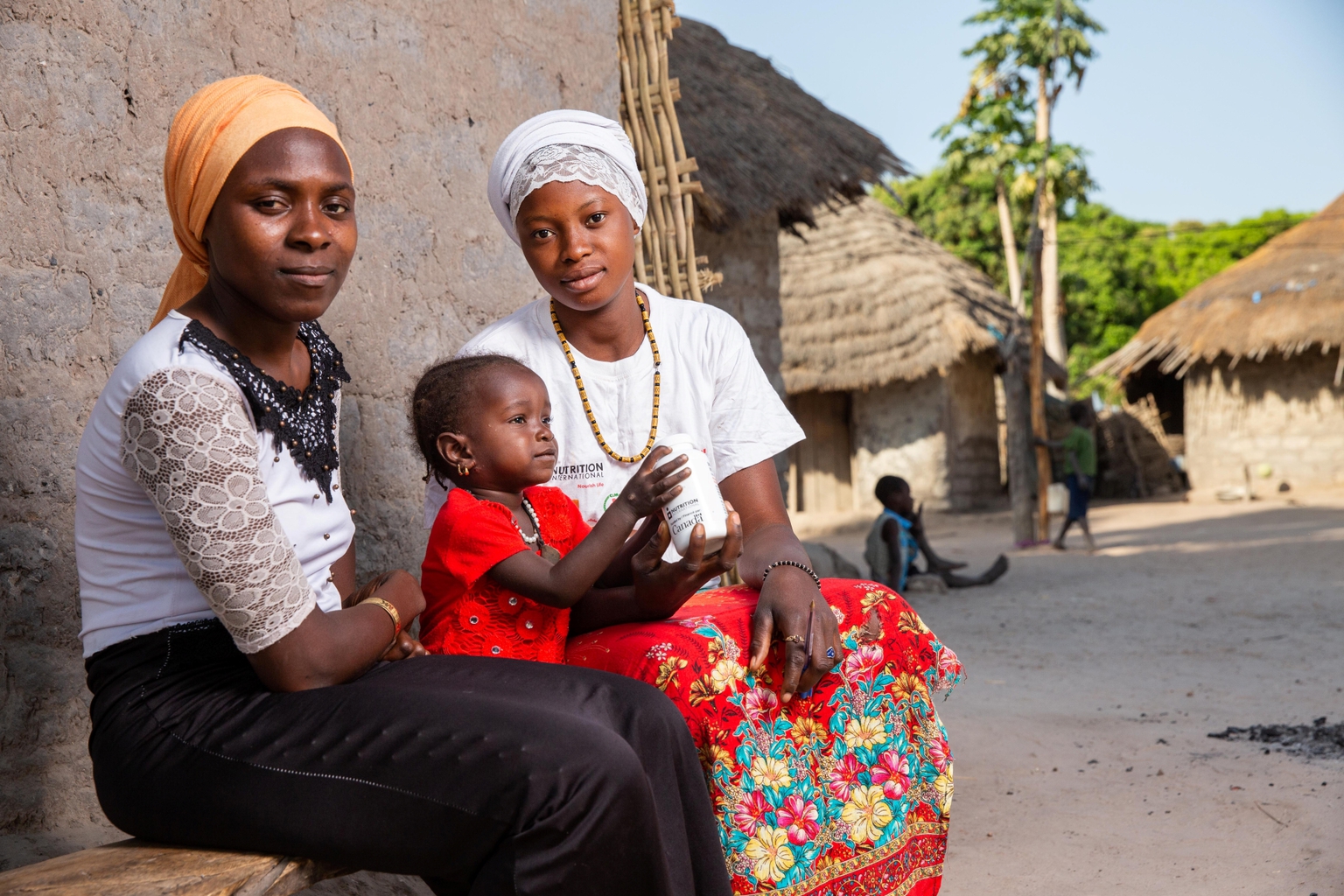Field Stories
Ten must see global nutrition stories from 2023
December 18, 2023
Delivering nutrition services during COVID-19: how Nutrition International is working to avoid a looming malnutrition crisis
Nutrition International is working to find innovative ways to continue to deliver its programs despite the challenges posed by the pandemic.
Posted on May 19, 2020

The global COVID-19 pandemic, and the measures taken by countries to slow it down, have had a profound impact on the world. Beyond the obvious and much-talked-about health, food security and economic impacts, it’s clear that the pandemic will also bring about a malnutrition crisis for some of the world’s most vulnerable populations.
Lockdowns, physical distancing requirements, diversion of resources to the COVID-19 medical response and fear of infection have decreased access to nutrition services, putting people who need them most − such as pregnant women and young children − at increased risk of nutritional deficiencies, illness and even death. Furthermore, past emergencies have shown that economic crises lead to higher prices and decreased purchasing power, and mean people can‘t afford to buy the nutrient-dense foods their bodies need to be healthy.
This malnutrition crisis could have a devastating impact on an entire generation, and threaten many key development gains made over the last decades. The importance of evidence-based nutrition actions at every stage of the COVID-19 crisis cannot be overstated – nor can the risks of disrupted access to nutritious food and nutrition services.
Nutrition International is working to find innovative ways to continue to deliver its programs despite the challenges posed by the pandemic, to ensure access to lifesaving nutrition services when they are most needed.
Over the past several weeks, we have been collaborating with local and national governments in the countries where we work, as well as with our partners, to rapidly provide technical leadership and interpret global guidelines in each context, adapt program delivery strategies, leverage functioning platforms and find new ones.
Here are only a few examples of the exceptional work our global team has been doing:
Frontline health workers are also stepping up to ensure their communities can receive the nutrition services they need in a safe way. They are hard at work devising innovative protocols to treat patients − utilizing single windows, demarcating socially distant safe spots, practicing and advising handwashing, and even distributing nutrition supplements to patients through relatives visiting the health facilities. Many are also using social media to share messages about COVID-19 prevention.
Nutrition should be an integral part of countries’ response to COVID-19 to ensure that this health crisis does not cause a malnutrition crisis. Protecting the poorest and most vulnerable from the serious health consequences of malnutrition will be important to prevent a ‘crisis within a crisis’ as the pandemic progresses.
As an expert ally to governments in identifying and carrying out highly effective actions at scale, Nutrition International is committed to supporting countries in ensuring proven nutrition interventions can be delivered through this pandemic – and beyond.